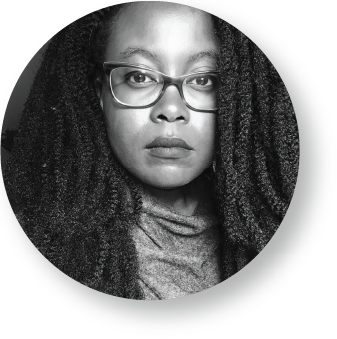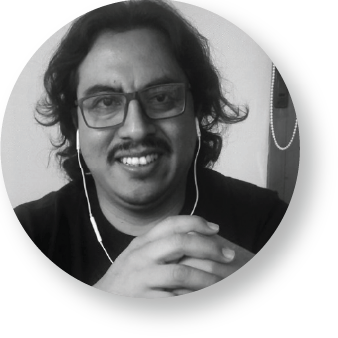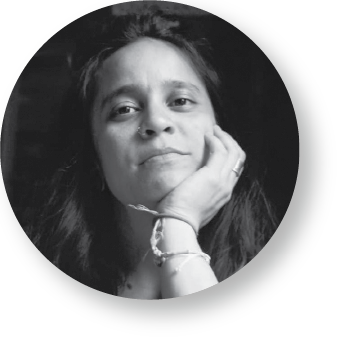PACS news / January 16, 2024
Digital Civil Society Lab Announces 2024-25 Cohort of Practitioner Fellows
Five social sector leaders to develop research and tools to benefit civil society
The Digital Civil Society Lab (DCSL) and the Center for Comparative Studies in Race and Ethnicity (CCSRE) are pleased to announce our new joint cohort of Practitioner Fellows for 2024-25. This highly accomplished cohort includes five social sector leaders whose critical work ranges from digital rights, equitable access to technology to the use of feminist geospatial data to African art and sustainable agricultural practices.
Bringing a wealth of knowledge and expertise to their fellowship projects, the 2024-25 cohort will develop tools and understanding to inform and benefit civil society at large.

Jepchumba Cheluget
Jepchumba is a digital artist, farmer, and cultural technologist. Exploring the intersection of art, tech, and culture in Africa, she is on a mission to access the rich legacy & inheritance of African technological innovation and elevate African creativity and innovation on a global stage. She is the Founder of African Digital Art and Future Lab Africa. A passionate advocate for the growth of creative technology in Africa, she is a speaker, strategist, and cultural ambassador, bridging the gap between African art and tech innovation. Read full bio.
Jepchumba’s Project: Sustainable Livelihood Toolkit for Digital Africans
This project will develop a digital toolkit that will initiate radical imagination through African agricultural and technological practices. The toolkit will compose a sustainable livelihood toolkit for digital Africans. The toolkit will recover some information about African knowledge systems to put to practical use the imagination outside western traditional understanding of technology.

Melquiades (Kiado) Cruz
Melquiades (Kiado) Cruz is a distinguished community organizer, communication technology innovator, and Indigenous scholar hailing from the Zapotec community of Yagavila in the Rincón de la Sierra Norte of Oaxaca. Rooted in the Sierra, alongside his ancestors, Kiado’s family continues to reside there, cultivating the fields that surround them. Drawing upon the wealth of knowledge from his community and beyond, Kiado endeavors to reflect, motivate, and explore alternative avenues for regenerating culture through communication. Read full bio.
Kiado’s Project: Digital Empowerment: Bridging Divides for Marginalized and Indigenous Communities in Oaxaca, Mexico – A Community Data Governance Initiative
The “Digital Empowerment: Bridging Divides for Marginalized and Indigenous Communities in Oaxaca, Mexico” is a groundbreaking Community Data Governance Initiative that partners with the “Indigital” initiative launched by indigenous communities in Oaxaca. Created during the pandemic, this project tackles inequalities arising from ICT organization and data extraction, addressing issues stemming from a lack of planning and restricted access to information and communication. By establishing comprehensive data governance systems, it empowers marginalized communities to access, manage, and use information effectively, promoting digital inclusion, transparency, and informed decision-making to enhance their quality of life. The initiative aims to affirm rights to information, expand access to government information in Indigenous languages, address data access and control, and design ICTs tailored to community needs, in collaboration with the University Services and Knowledge Networks of Oaxaca

André Ramiro
Fellow researcher at Weizenbaum Institute for the Networked Society (“Technology, Power, and Domination” research group), with research on democratic oversight of intelligence activities. He was an Alexander von Humboldt Foundation’s “German Chancellor Fellow” (2022-2023) hosted by the Alexander von Humboldt Institute for Internet and Society (“Data, actors, infrastructures” research group), with research on legal frameworks for the use of hacking tools by public authorities in Brazil and Germany. Co-founder and former director of the Law and Technology Research Institute of Recife – IP.rec, where he has coordinated projects in the area of privacy, data protection, surveillance policies, such as the Encryption Observatory. Read full bio.
André’s Project: A human rights-based accountability framework for halting government hacking abuses
The project aims to develop a legal framework, in the form of a policy paper, that will assist civil society and public entities committed with the defense of fundamental rights in assessing risks and abuses related to the use of spywares by law enforcement and intelligence authorities. It will also provide training, through a workshop, to civil society leaders to empower themselves with advocacy, litigation, and research tools concerning the subject of the project.

Cristina Vélez
Cristina Vélez Vieira (b. Medellín, Colombia) is a digital social researcher. Her work lies at the intersection of platform research and social movements in Latin America, building the field through the design of tools and methodologies. She has co-founded and led pioneering initiatives in the region, such as Linterna Verde and the Lupas Project at Puentes, which support civil society organizations and journalists with social listening tools, insights, and training. Her new initiative, Las Escuchadoras, brings together a network of female digital researchers working in 6 countries at the crossroads of gender and data equity. Read full bio.
Cristina’s Project: Transnational Data Collaboratives through the EU Digital Service Act (DSA): Advancing Platform Research for Latin American Feminist Organizations
The Latin American feminist movement, which has mobilized millions through Twitter campaigns like the pro-choice Green Wave, is confronting new restrictions on social media data, posing challenges for digital association and media manipulation risks identification. In contrast, conservative movements and marketing agencies can afford social listening software, while the EU Digital Services Act provides European civil groups with unique opportunities for platform research. My project, a Data Collaborative for Transnational Feminist Platform Research, aims to: 1) Enable EU nonprofits to share EU DSA data access with LatAm feminist organizations; 2) Explore schemes for third-party social media data donation/dataraising; and 3) Develop a Latin American data hub, a trusted intermediary, that will responsibly manage these repositories while promoting its use through training and user-friendly tools for a community of over 1,216 female digital researchers and activists.

Selene Yang
Selene Yang is a Latin American queer feminist and community organizer. Holder of a PhD in Social Communications from National University of La Plata, Argentina. She focuses on feminist collaborative digital cartographies and feminist geospatial data creation. Co-founder of Geochicas, a transinclusive women’s mappers group in OpenStreetMap and OSGeo. Read full bio.
Selene’s Project: Feminist geospatial data creation. Finding spatial justice through digital collective practices of care in Latin America.
This project focuses on the impact of collectives, including Geochicas in Latin America, in creating feminist geospatial data to influence local public policies. It highlights the need for inclusive geospatial data production that addresses the unique needs of women and gender dissident groups, aiming to combat epistemic and spatial injustices.
